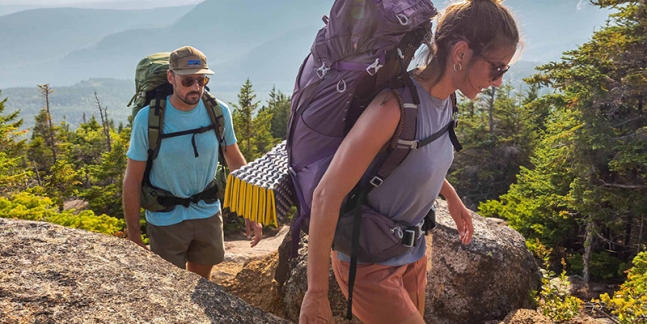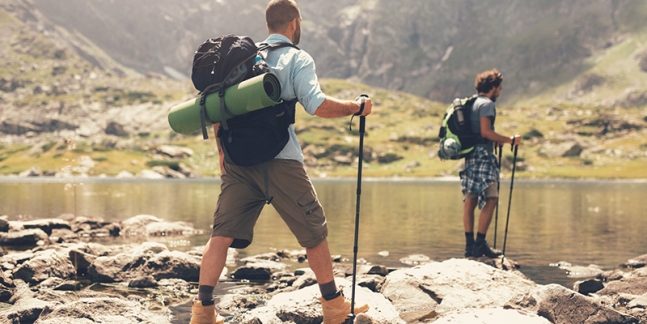Travel
Affordable Car Rental Tips for Smart Travellers
1756721130000
Ever reach a trail and realise you forgot something important? Do you really need that extra shirt? Or maybe you left the stove fuel at home? Don’t worry; a solid packing list for backpacking keeps you ready for adventure. Here are the further details on the backpacking essentials you can’t afford to miss.
Ever reach a trail and realise you forgot something important? Do you really need that extra shirt? Or maybe you left the stove fuel at home? Don’t worry; a solid packing list for backpacking keeps you ready for adventure. Here are the further details on the backpacking essentials you can’t afford to miss.

Backpacking is about carrying only what you need. Every pound matters when you’re hiking up a hill, but forgetting key items can ruin your trip.
A good backpacking gear guide helps you find the right balance. Think of your backpack as a small, organised toolbox, not a junk drawer. Start with the basics: shelter, sleeping gear, and your backpack. A lightweight tent or tarp is a must unless you want bugs as bunkmates. Pick one under three pounds for easy carrying.
Your sleeping bag should fit the weather; down is warm and light but hates water, so synthetic is better for wet places. Add an inflatable sleeping pad for comfort without extra bulk in your lightweight travel gear.
Your backpack should feel comfy, like a favourite jacket. A 40-65 litre pack works for most trips. Try it on with weight before buying; don’t fall for cool features you won’t use.
According to the reports, 72% of travellers plan to venture abroad in 2025, up from 65% in 2024, and nobody wants to be hungry on a trail. Your backpacking list should include a small stove, fuel, and a lightweight pot. A jet boil is quick and easy. Don't forget a spork; it's the best tool for eating.
Pack foods like dehydrated meals, nuts, and energy bars. Please put them in resealable bags to save space. A water filter or purification tablets are super important, stream water might look clean, but it's not always safe. Carry at least two litres of water, and know where to refill.
Clothes can make or break your trip. You don't need a new outfit every day; nature doesn't judge your style. Stick to layers: a base layer that dries fast, a warm fleece, and a waterproof jacket.
One pair of pants (convertible ones are great) and two quick-dry shirts are enough. Pack two pairs of cosy merino wool socks; they stay fresh longer. A lightweight puffy jacket keeps you warm at night. Don’t skip a rain cover for your pack; wet gear is no fun.
For shoes, choose sturdy hiking boots or trail runners. Wear them on short hikes first to avoid blisters. A hat protects you from the sun or cold. Simple, but smart choices keep you comfy.
Getting lost isn’t fun. Always carry a map and compass, even if you use a GPS. Tech can fail, but a compass doesn’t. Learn basic navigation, it’s like having a superpower. A headlamp with extra batteries is a must for nighttime. Tripping in the dark is a quick way to sprain an ankle.
A small first-aid kit is super important. Include bandages, antiseptic wipes, blister patches, and pain relievers. A multi-tool with a knife is handy for cutting or cooking. Pack a firestarter, like waterproof matches, for emergencies. A whistle is louder than yelling if you need help.

Little things can save your trip. Wrap duct tape around your water bottle for quick fixes. A small shovel for digging a bathroom hole is a must; keep nature clean. Sunscreen and lip balm with SPF protect your skin. A tiny repair kit with a needle, thread, and patches can fix a torn gear. Bug spray keeps mosquitoes away.
For hygiene, pack a small toothbrush, biodegradable soap, and a quick-dry towel. Pack out all trash, even toilet paper, in zip-lock bags. It’s not glamorous, but it’s the right thing to do.
Aim to keep your pack’s base weight (everything except food, water, and fuel) under 15 pounds. Weigh your gear before you go. Skip heavy extras like a coffee maker; a light mug works fine. But don’t cut corners on safety or comfort to save a few ounces. A fun trip beats a super-light one.
Backpacking isn’t just gear, it’s mental prep too. It tests your patience. A small journal or book can help you relax. Tell someone your plans, including when you'll be back. Solo hikers should carry a satellite communicator for emergencies. Feeling prepared is just as important as having the right gear.
Before your big trip, do a practice hike. Load your pack, walk a few miles, and check what feels wrong. Adjust straps or ditch extra stuff. Please set up your tent and test your stove at home; you don’t want to figure it out in the rain.
A smartly packed bag sets you up for an incredible adventure. With the right backpacking essentials, you can enjoy the sounds of nature, the crunch of the trail, and epic views. Check your pack twice, tie your boots, and head out with confidence. The wild is calling, and you’re ready.
How do you like this article?
Travel
1756721130000
Health & medical treatment
1756721189000
Health & medical treatment
1756721189000
Travel
1756721130000
Travel
1756721130000
Health & medical treatment
1756721189000
Recipe & Gourment
1756721254000
Health & medical treatment
1756721189000
Recipe & Gourment
1756721254000
Health & medical treatment
1756721189000
Travel
1756721130000








